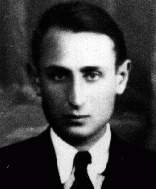You searched for: googleseo霸屏霸屏靠谱【TG飞机:@bapingseo】谷歌seo指南怎么用seo顾问【TG电报:@bapingseo】帕勞google留痕收錄【Telegram:@bapingseo】1399彩票net网站jc聚彩彩票平台官方?6iSv5b/Aa1GaM.html
<< Previous | Displaying results 191-200 of 293 for "googleseo霸屏霸屏靠谱【TG飞机:@bapingseo】谷歌seo指南怎么用seo顾问【TG电报:@bapingseo】帕勞google留痕收錄【Telegram:@bapingseo】1399彩票net网站jc聚彩彩票平台官方?6iSv5b/Aa1GaM.html" | Next >>
-
Francis Ofner
ID CardFrancis grew up in a city with a Jewish community of 5,000. The Ofners belonged to a synagogue that sponsored many social activities, from sports to care for the elderly. In 1931 Francis began law school at the University of Zagreb. While a student, he organized a service that posted on university bulletin boards the translations of speeches by Nazi leaders broadcast on the radio. 1933-39: By the time Hitler became chancellor of Germany, Francis was heavily involved in trying to unify the university's…
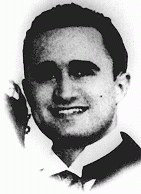
-
Nikola Mrvos
ID CardThe oldest of five children, Nikola was born in a small village in the Croatian part of Yugoslavia. Like his parents, Nikola was baptized in the Serbian Orthodox faith. After receiving his medical degree from Prague University, he married, and in 1912 moved with his wife to Serbia. During World War I he served in the Serbian army, and then settled in Novi Sad where he co-owned a medical clinic. 1933-39: Nikola and his wife raised three children in Novi Sad. Then difficult times brought on by the 1930s…
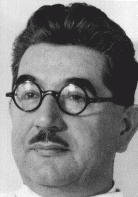
-
Milica Popovic Kuhn
ID CardMilica was the fourth of nine children born to Serbian Orthodox landowners in the Croatian part of Yugoslavia. In 1922 Milica married Milan Kuhn, a Catholic Serb, in a Serbian Orthodox ceremony, and the couple moved to the Macedonian part of Yugoslavia, where Milan was working on hydroelectric projects. In 1932 the couple returned with their young daughter to live in northern Yugoslavia. 1933-39: The Kuhns lived in the city of Zrenjanin in the Vojvodina region where Milan worked as a hydroengineer…
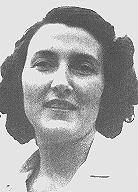
-
Janusz Piotrowski
ID CardJanusz was the eldest of four children born to Catholic parents in Plock, a town located in a rural area north of Warsaw. His father was an accountant. Janusz attended local schools, and became active in scouting. 1933-39: Janusz went to Warsaw to study civil engineering. On September 1, 1939, the Germans began bombing Warsaw. One week later, all able-bodied men who had not been mobilized were directed to retreat east. On September 17, Janusz was 90 miles from the Romanian border. That night, the Soviets…
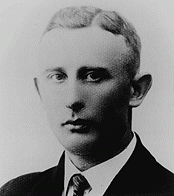
-
Lore Heumann
ID CardThe younger of two girls, Lore was born to Jewish parents in a village close to the Belgian border. The Heumanns lived above their general store. Across the street lived Lore's grandfather, who kept horses and cows in his large barn. When Lore was a year old, her family moved to the city of Lippstadt. The Lippe River flowed beyond the large garden in back of their house. 1933-39: When Lore was 6, her family moved to the nearby city of Bielefeld, where she entered public school. A year later, she and her…
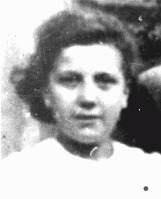
-
Vladan Popovic
ID CardVladan was the oldest of five children born to well-to-do Serbian Orthodox parents in the village of Gnjilane in the Serbian part of Yugoslavia. Vladan went to Montpelier, France, where he earned a law degree from the university. When Vladan returned to Yugoslavia, he worked as an attorney in Belgrade. He married and had one daughter. 1933-39: Vladan's wife died in 1933, and his 4-year-old daughter went to live with her maternal great-aunt. Meanwhile, Vladan had expanded his law practice and was…
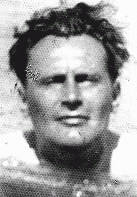
-
Miso Vogel
ID CardMiso came from a religious family in a small village in Slovakia, where his father was a cattle dealer. He was the eldest of five children. When Miso was 6 his family moved to Topol'cany, where the children could attend a Jewish school. Antisemitism was prevalent in Topol'cany. When Miso played soccer, it was always the Catholics versus the Jews. 1933-39: In 1936 Miso had his bar mitzvah and was considered a man. His grandparents traveled 50 miles for it; he was so happy they were all together. In March…
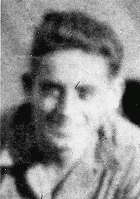
-
Freya Karoline Lang
ID CardAn only child, Freya was born to Jewish parents who lived in a small German town in the Rhine River valley. The Langs owned a successful dry goods business. At this time ready-made clothes were still rare in the countryside. Townspeople and local farmers would purchase fabric at the Lang's store and then take it to their tailor or seamstress to be sewn into a garment. 1933-39: When Freya was growing up, the Nazi party was in power. Many Jews left Germany--Grandmother Lang and one of Freya's uncles sailed…
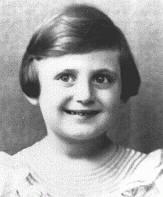
-
Zofia Rapaport
ID CardZofia was born to a Jewish family in Warsaw. Zofia's father, a self-made man who had put himself through university, was a successful banker. The Rapaports lived on a street of single-family homes with gardens. Zofia's room was decorated with yellow lacquered furniture. 1933-39: As a young child, Zofia loved to play with her dog, Chapek. Sometimes she got to go shopping with her mother downtown. Each year during the Jewish holiday of Passover her family visited Zofia's grandparents in Lvov. In late August…
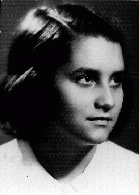
-
David J. Selznik
ID CardThe village in Lithuania where David grew up was located near the Latvian border. His father was a peddler. At age 6, David was sent to Ukmerge, a town known to Jews by its Russian name, Vilkomir, to study traditional Jewish texts at the rabbinical academy there. Six years later, David was called to return home to head the Selznik family because his father had died. 1933-39: David lost his job in 1933, so he left Lithuania and went to the United States and then Portugal. But in 1936 the Baltic states were…
